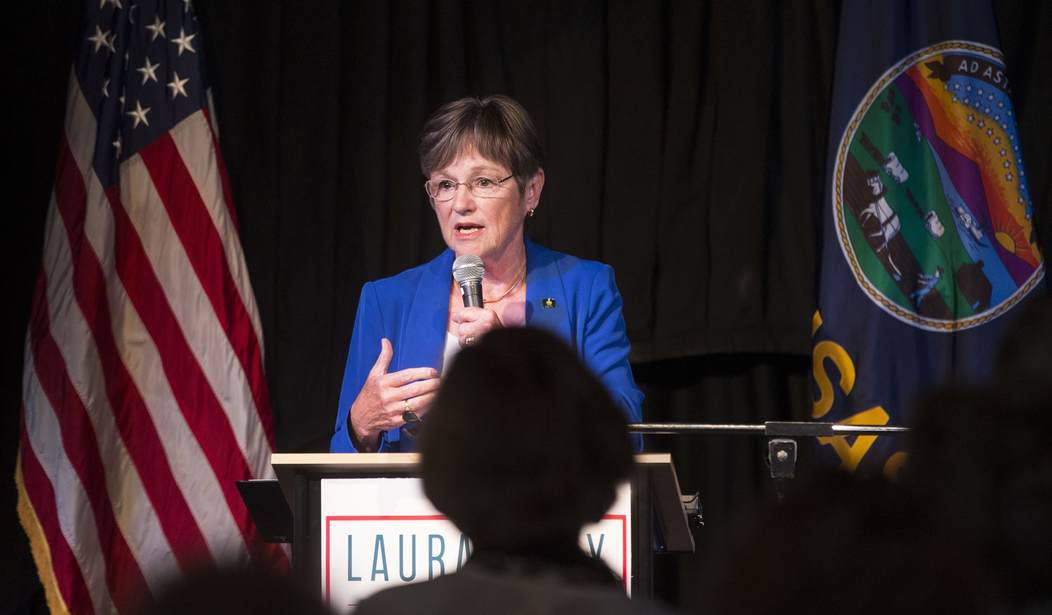Kansas Democratic Governor Laura Kelly announced her opposition to Joe Biden’s COVID vaccine mandate, saying she doesn’t think it’s the “correct” or “most effective” move.
Kelly is up for re-election in 2022 and she believes the “vaccinate or test” mandate won’t serve as a “solution for Kansas.”
“It is too late to impose a federal standard now that we have already developed systems and strategies that are tailored for our specific needs,” she said. That’s an interesting explanation, but do you believe it?
What are the “specific needs” of Kansas compared to, say, Arkansas or any other small rural state? Aside from slapping a Jayhawk logo on vials of vaccine, how do the needs of Kansas differ?
Governor Laura Kelly's statement addressing the new federal vaccine mandate: pic.twitter.com/lAFAs3pQLK
— Governor Laura Kelly (@GovLauraKelly) November 5, 2021
But several Republicans, including Florida Gov. Ron DeSantis, have pledged to challenge the Labor Department’s rule, saying it violates constitutional rights and will exacerbate current labor shortages in several industries. Some business groups, including in retail, have expressed worries on how it will affect the upcoming holiday season.
“Florida will be responding, and I think the rule’s going down, I just don’t think that there’s an adequate basis for it, and I think you’ve even seen people on their side acknowledge that they don’t have firm constitutional footing for this,” DeSantis said.
Kelly’s rebellion won’t change a lot of Democrats’ minds. But it shows the continuing potency of the mandate as a political issue. Eleven states have filed suits claiming that Biden’s OSHA vaccine mandate fails to pass constitutional rigor.
The legality of the mandate will come down to whether the OSHA “emergency temporary standard” (ETS) is met. The OSHA director issued an ETS claiming that employees are exposed to a “grave danger,” therefore “immediate action” is necessary to protect employees who might be exposed to COVID-19.
“Grave danger”? “Immediate action”? Really? The government is going to have a hard time proving that.
The problem is that between the time that the mandate becomes operational — currently January 4, 2022 — and the time it can be enforced, there will be a lag of several months.
Just as the administration intends.
The administration is trying to buy some time here — a rule hanging in the air and not enforced for months will prompt employers to start complying in advance, but cannot be challenged in court until it goes into effect. But once that can happen, courts will notice that this is not, in fact, “immediate” action or anything like it, and the conditions cited — contrary state orders, workers getting infected and dying — are not new. In fact, it may well be the case that the rate of infection, hospitalization, and death may be lower in January than it was in September (or, for that matter, in the spring and summer of 2021, when the vaccine was available and resistance to vaccination was already a public-health controversy). It is certain to be the case that more workers are vaccinated by then.
The threat of government enforcement will compel businesses to comply. Is this a great country, or what?
Governor Kelly isn’t doing anything brave or noble in resisting the mandate. She’s a practical Democratic politician serving in a very red state. Don’t expect her to go as far as joining the suit by Republican governors against the vaccine mandate.
But she may be rooting for them to win anyway.










Join the conversation as a VIP Member